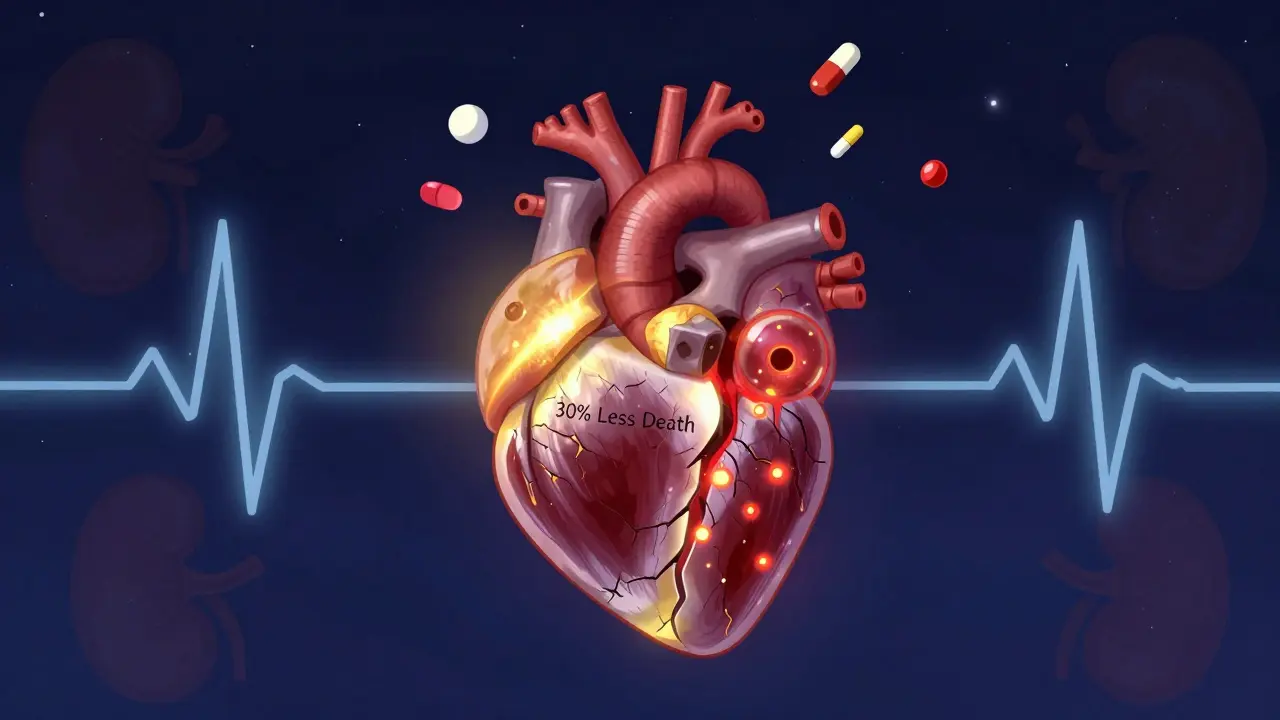Heart Failure: Symptoms, Medicines, and What to Do Every Day
Heart failure means the heart can’t pump blood as well as it should. That doesn’t always mean a sudden collapse. Often it starts slowly: more tiredness, swelling in your legs, or shortness of breath when you walk up stairs. Catching these signs early changes outcomes. Here are clear, useful steps you can use right now.
Common medicines and what they do
Several drug groups improve symptoms and lower risk of hospital stays. ACE inhibitors like lisinopril relax blood vessels and ease the heart’s job. ARBs work similarly if you can’t take an ACE inhibitor. Beta-blockers (metoprolol, bisoprolol) slow the heart and help it pump better over time. Diuretics (furosemide/Lasix, torsemide) remove extra fluid so you breathe easier. Aldosterone blockers like spironolactone cut swelling and help long-term. Newer options such as SGLT2 inhibitors (empagliflozin, dapagliflozin) reduce hospital visits even in people without diabetes.
Side effects and checks: ACE inhibitors and ARBs can raise potassium and affect kidneys—labs are usually checked 1–2 weeks after starting or changing dose. Diuretics can lower potassium and sodium, so your doctor may ask for blood tests. If you’re ordering meds online, use a licensed pharmacy and keep your prescriber in the loop. The right drug mix depends on your type of heart failure, other diseases, and symptoms.
Daily actions that help
Weigh yourself every morning after using the bathroom and before eating. A quick weight jump—around 2–3 pounds (1–1.5 kg) in 24–48 hours—can mean fluid is building up and you should call your team. Cut back on salt: aim to reduce added salt and processed foods. Follow fluid limits if your doctor set one. Stay active with short, regular walks or a rehab plan; even gentle movement helps. Keep vaccines (flu, COVID, pneumococcal) up to date—respiratory infections often worsen heart failure.
Medication timing matters. Take prescriptions the same way each day. Use a pillbox or phone reminders. If you get dizzy, lightheaded, or very tired after a new med, call your provider—doses can often be adjusted safely.
When to get urgent care: severe shortness of breath at rest, sudden chest pain, fainting, very fast heartbeat, or drastic drop in urine output. Also go to the ER if swelling and breathing problems worsen quickly. For questions about switching meds, buying refills online, or side effects, contact your clinic first. Managing heart failure is teamwork: you, your doctor, and the daily habits you keep make the biggest difference.
ACE Inhibitors with Spironolactone: Managing the Hyperkalemia Risk
Combining ACE inhibitors with spironolactone saves lives in heart failure but carries a high risk of dangerous potassium spikes. Learn who’s at risk, how to monitor safely, and what to do when levels rise - without losing the life-saving benefits.
How Home Health Care Assists in Managing Heart Failure
Heart failure is a chronic condition that affects millions worldwide. Home health care plays a crucial role in managing this condition by providing personalized care, medication management, and monitoring. This article explores the benefits and strategies of home health care in helping patients live fuller, healthier lives despite their diagnosis.


